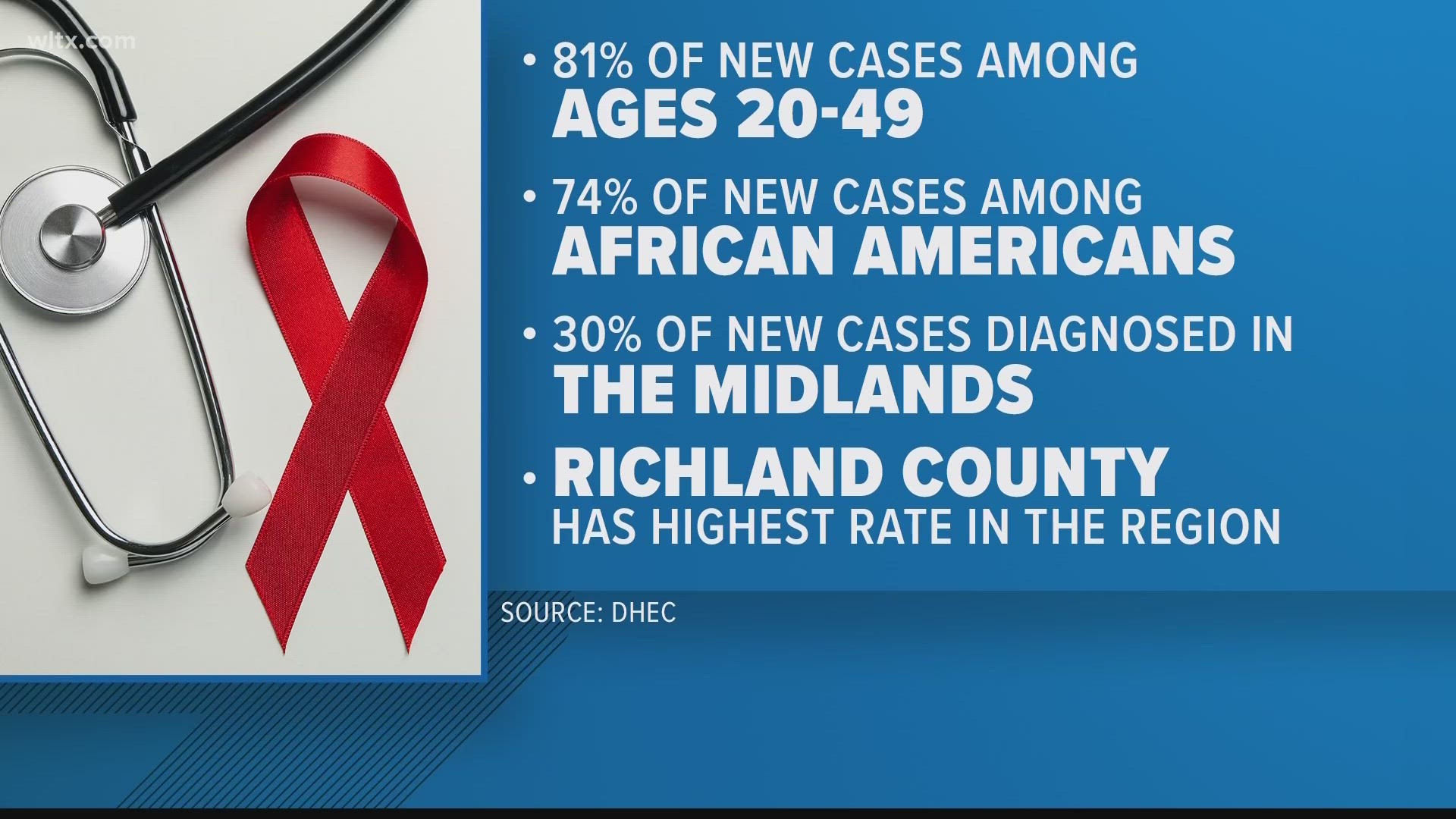COLUMBIA, S.C. — National Black HIV/AIDS Awareness Day is observed on Feb 7, and the South Carolina Department of Health and Environmental Control (DHEC), along with other organizations throughout the Midlands, hosted testing for those looking to get their HIV status. This is an effort to reduce the number of new infections throughout the state.
It's a simple test that can be a big step towards knowing your status. That’s the message the Palmetto Aids Life Support Services (PALSS) is spreading.
“The most important thing is knowing your status. If you know your status you know how to proceed. You can proceed with safer behaviors you can understand what behaviors you are engaging in that may be putting you at risk for HIV,” PALSS Chief Executive Officer Carmen Julious said.
“Stigma is what’s killing us. Stigma is the thing that makes our job so hard. Stigma is the reason that many people don’t know their HIV status or don’t try to seek their HIV status,” Julious said.
When the numbers are broken down, DHEC says that 81% of newly diagnosed HIV cases are in people between the age of 20 and 49. 74% of all of the diagnosed cases in 2019 were within the African American community.
DHEC says out of all of the counties in the Midlands, Richland County has the highest number of new cases.
“We see African American communities that have less access to health care and less access to preventive health information, we’re going to see increases and a high rate of HIV,” Julious said.
Dr. Jessica Tilman is the nurse consultant for the division of STD, HIV and Viral Hepatitis at SC DHEC.
“There are several new long acting medications, so this is a shot that someone would be able to take for HIV treatment,” Tilman said.
Dr. Tilman says new technology has allowed for advancement in HIV medications.
"If pill taking doesn’t really work for them, that also reduces the amount of pills that they do have to take and any other issues related to getting to a healthcare provider to get the medication,” Tilman said.
PALSS offers counseling, referrals to care and support groups for people with HIV.
“Once you get into care, once you get into treatment and you’re able to remain in care and treatment, your health outcome looks different,” Julious said.

